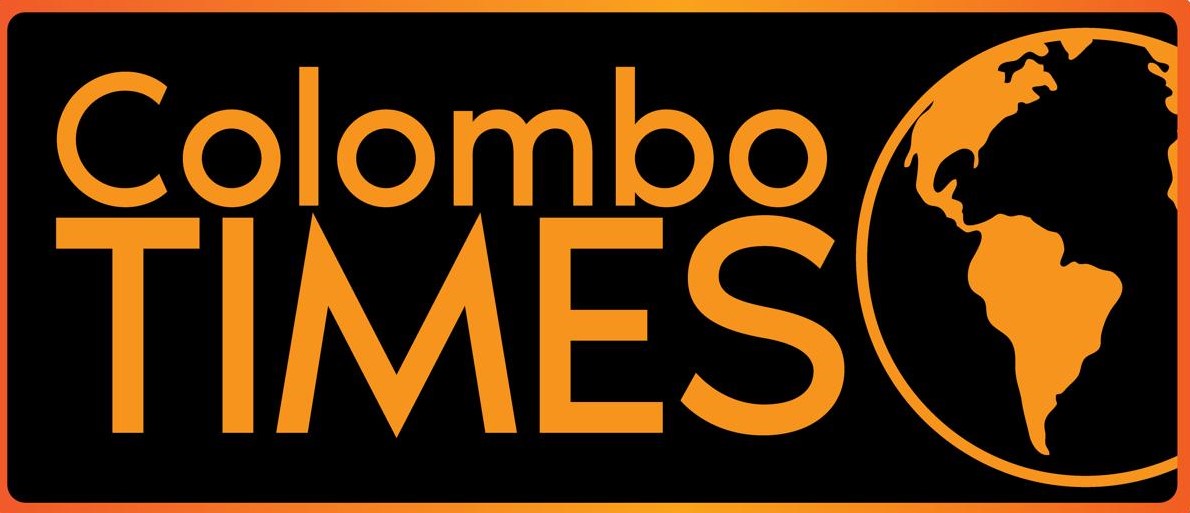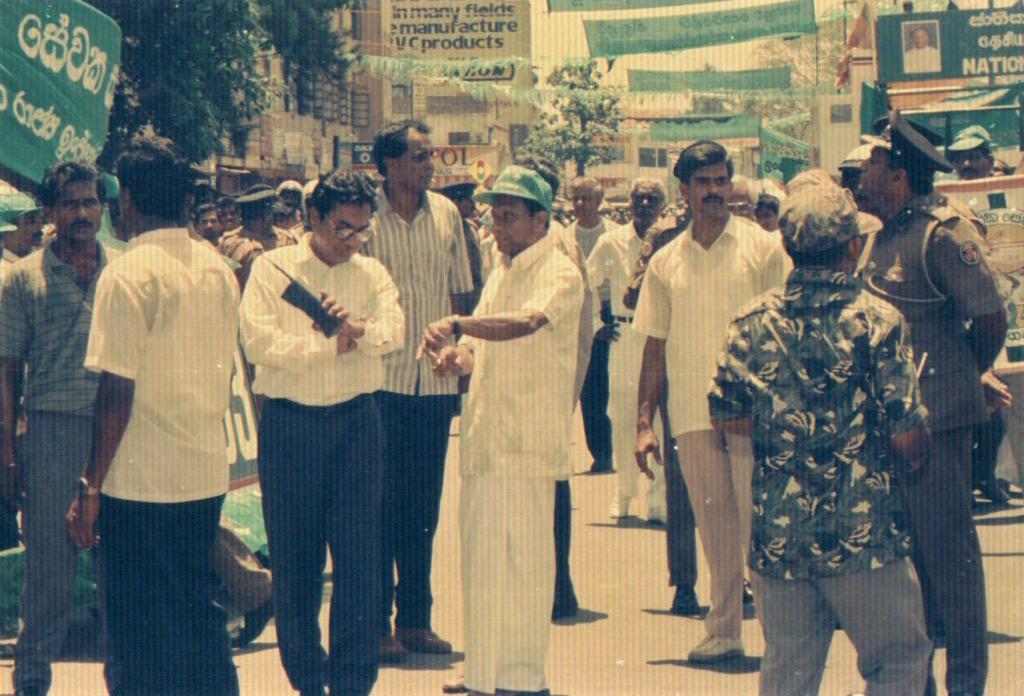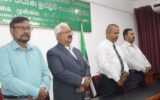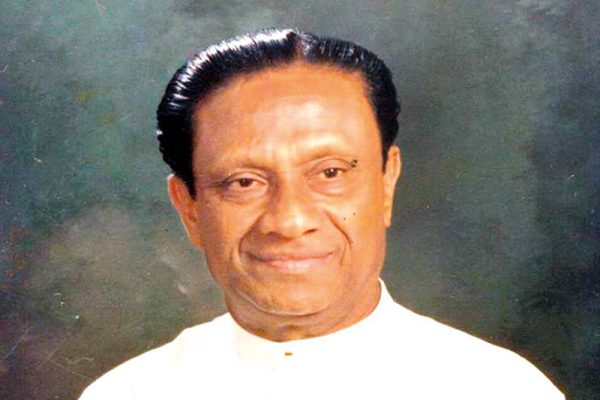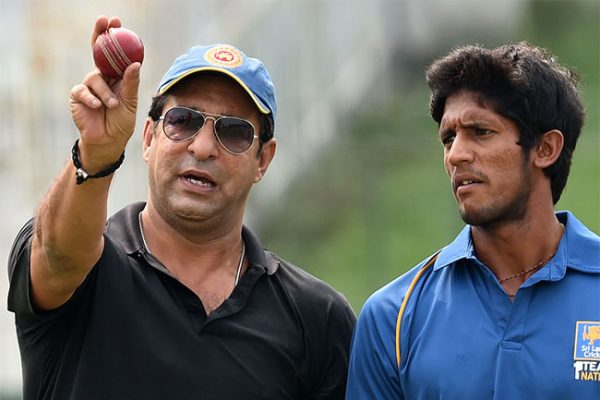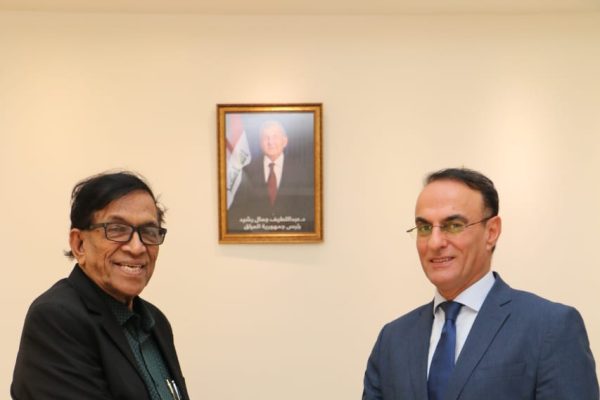Ashraff A Samad
COLOMBO Today, May Day, marks the 30th death anniversary of late President Ranasinghe Premadasa
He rendered an immense service for Sri Lanka through his dynamic leadership.
Premadasa was born on 23 June 1924 at Dias Place, Colombo 11, and got his early education at St. Joseph’s College, He, the architect of the Sri Sucharitha Movement, a voluntary organization with the objectives of uplifting the economic, social and spiritual development of the low income people living in shanty areas of the capital.
Allying with late A. E. Goonesinghe, the founder leader of the Ceylon Labour Movement, he commenced his political life. He had several ups and downs in that era. He had been the Deputy Mayor of the Colombo Municipal Council while functioning as a member of St. Sebastian’s Ward. Joining hands with late Dudley Senanayake, he joined the UNP and contested. He was elected the third Member of Parliament for Colombo Central in the Dudley Senanayake government at the general election held in March 1960,’During his tenure as Minister of Broadcasting in Dudley Senanayake’s cabinet, Premadasa turned Radio Ceylon, the oldest radio station in South Asia, into a public corporation – the Ceylon Broadcasting Corporation on 5 January 1967.

Part of his political program was shelter for the poor, after the United Nations declared a Year of Shelter. Other policies included Jana Saviya, the instrument he used to help the poor, a foster parents scheme, the Gam Udawa project with which he tried to stir up the stupor in the villages, the mobile secretariat whereby he took the central government bureaucracy to the peasants, the Tower Hall Foundation for drama and music, and the pension schemes he initiated for the senior artistes. On the economic front, the garment industry project that he initiated became a forerunner in earning foreign exchange and provision of employment in the villages.
He was elected second Member of Parliament at the general election held in 1965 for the same seat and was appointed Chief Government Whip besides being appointed Parliamentary Secretary of Local Government. Later he was raised to the position of Minister of Local Government.
Premadasa was elected first MP for Colombo Central in 1977 and became the Leader of the House and the Minister of Local Government. In addition he became the Deputy Leader of the UNP. When J.R. Jayewardene became the first Executive President of the country, Minister Premadasa became the Prime Minister on February 23, 1978.
He was elected second Executive President of the country when late J. R. Jayewardene stepped down, and led the UNP to
victory at the general election held in 1989. The country faced both a civil war in the north and a communist insurgency in the south at the time, both key issues Premadasa concentrated on, with particularly ruthless actions against the insurgents. The security forces brutally put down the revolt and killed many of its leaders.
Premadasa also concentrated on a grassroots-level economic development drive, focusing on the provision of housing, poverty alleviation and the upliftm of the poor. He encouraged the building of model villages with clean water, transport infrastructure, schools and health centers. He encouraged the establishment of small-scale industries (mostly garment-related) in poor areas by giving factory owners low-interest loans and a share in textile quotas for the United States and Europe. The Gam Udāwa programme is one of his best-known achievements in this area, along with the Janasaviya programme that is today part of the Samurdhi scheme. His proposal to declare 1987 as the International Year of Shelter for the Homeless was unanimously accepted at the 37th session of the United Nations General Assembly.
Ranasinghe Premadasa was killed along with 17 others on May 1, Saturday, 1993, a. during UNP’s May day rally in Colombo, by an LTTE suicide bomber. The explosion took place at Armour, Colombo

